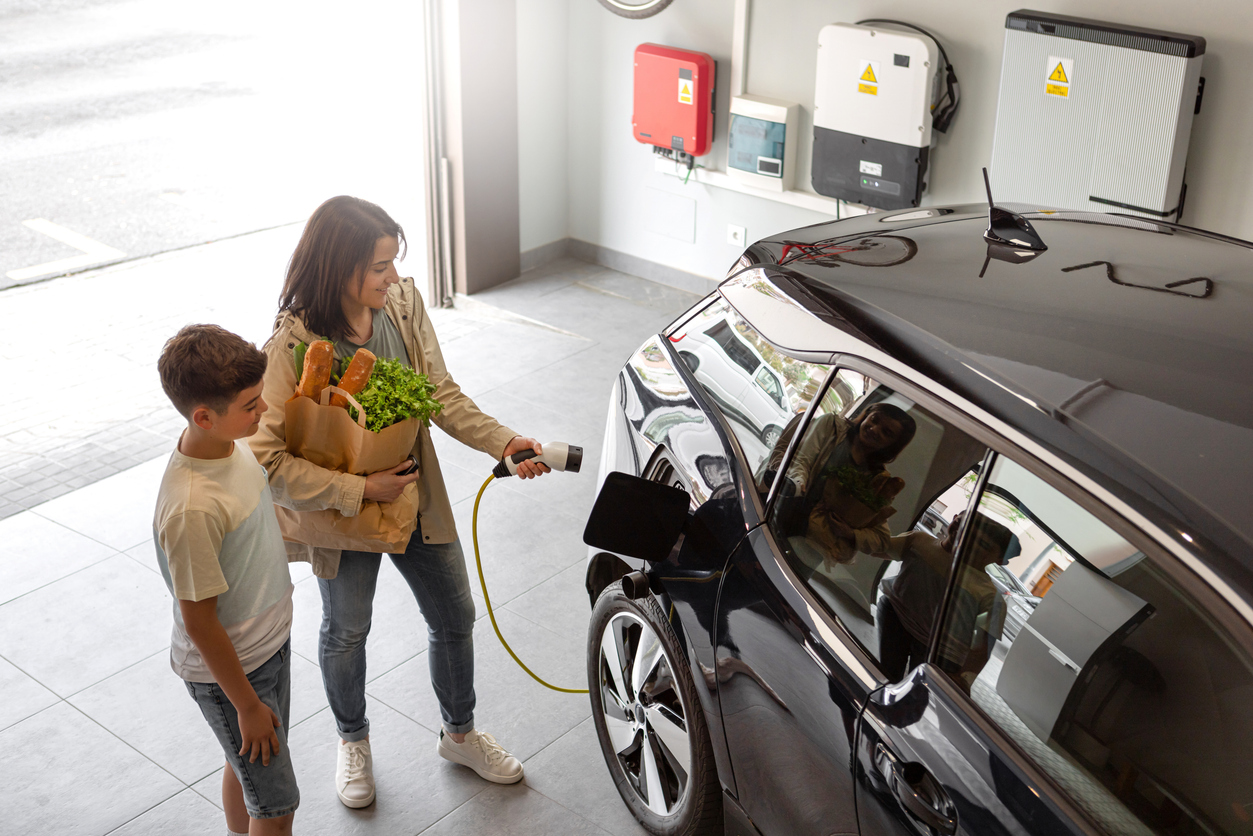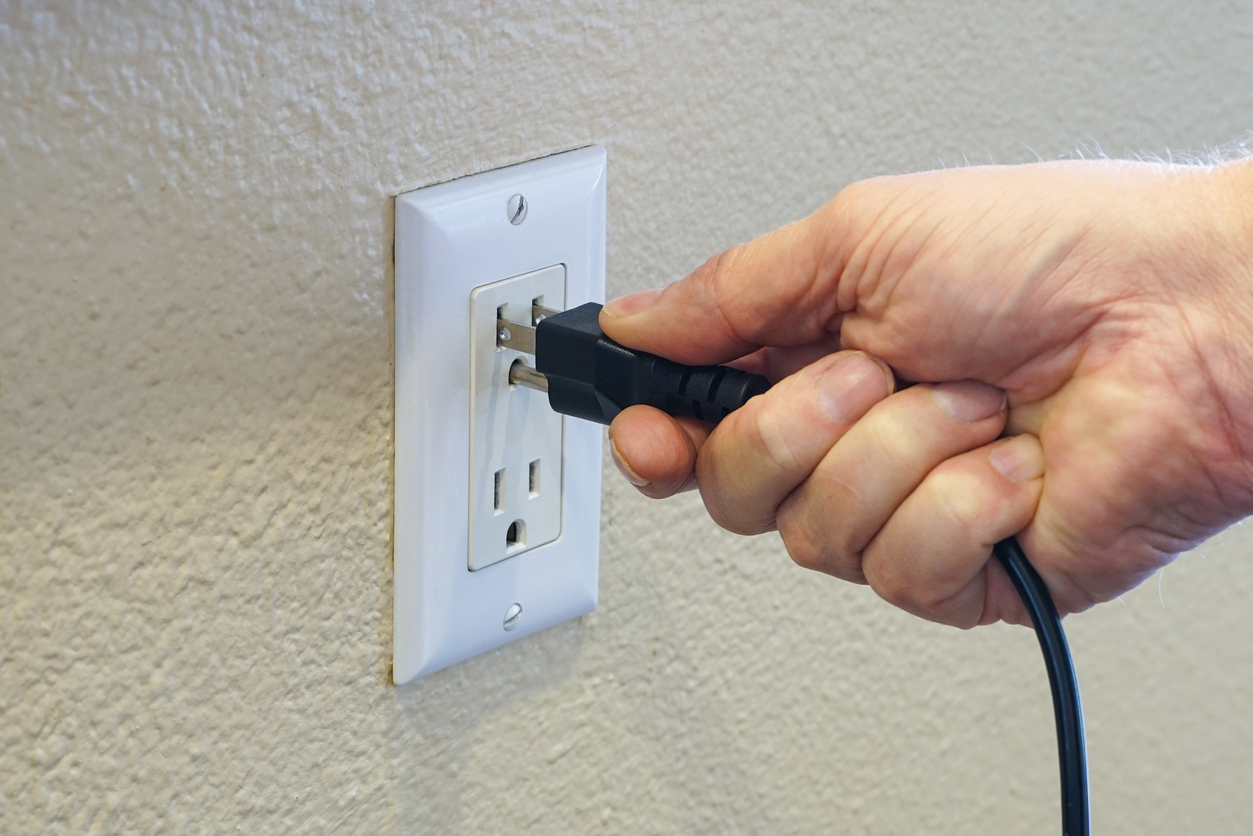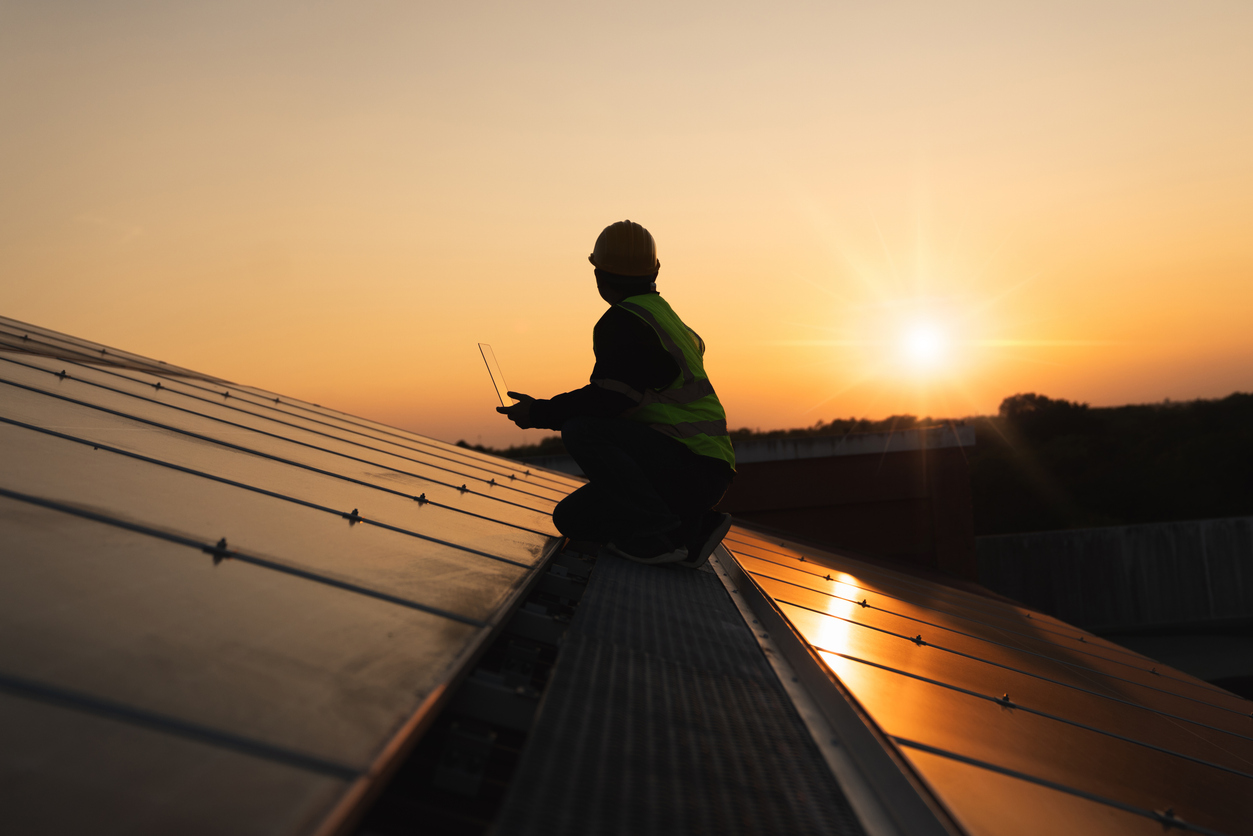
How You Can Save Money With a Home EV Charger Installation
EVs make daily life easier. Fewer stops, less maintenance, and energy you can control from your driveway. But for many, the number one motivating factor for switching to an EV is the cost savings. If you fall into this category, you’ve likely wondered, Is it cheaper to charge my EV at home?
For most households, yes. Below, we explain the cost difference, how charging at home actually works, and how EV charger installation works in Western Washington, including permits, pricing, and bidirectional features.
The Real Cost Difference
Three simple reasons explain why home charging often beats public networks: pricing, control, and efficiency.
- At home, you pay your residential electric rate, which is usually lower than public station pricing that can include session and idle fees.
- You control when you charge, so you can target off-peak hours.
- Daily level 2 charging is easier on your schedule and your battery than frequent fast charging, which trims both time and long-term costs.
Home vs Public Charging Costs
When you weigh both dollars and minutes in home vs public charging costs, home charging usually comes out ahead. Public Level 3 fast charging is perfect for road trips, but it usually carries a higher price per kilowatt-hour and may incur additional fees. Level 2 at home uses your residential rate and runs in the background while you sleep.
Most Western Washington drivers can cover a daily commute overnight on Level 2 without needing to visit a public charger.
Cost Per Mile Formula
Use your utility bill and your car’s efficiency to see real numbers for your home.
- Find your energy rate in dollars per kWh.
- Check your EV efficiency in kWh per 100 miles.
- Cost per mile = (kWh per 100 miles ÷ 100) × your rate.
Example: If your EV averages 27 kWh per 100 miles and your rate is $0.13 per kWh:
0.27 × 0.13 = $0.035 per mile. At 1,000 miles per month, that is about $35 in electricity.
Ways To Pay Less on Your Power Bill
Adjust a few settings, and you’ll see the changes reflected on your statement.
- Schedule Overnight Charging: Start after local peak hours since many utilities offer time-of-use plans.
- Use a Daily Charge Limit: Around 70 to 80 percent supports battery health and shortens sessions.
- Right-Size the Amps: Dropping from 40A to 32A can prevent nuisance trips in older homes while still finishing overnight.
- Track kWh, Not Just Percent: Charger apps show energy per session so you can identify what saves money.
- Plan for Solar Later: Daytime charging can soak up excess production for near-zero fuel cost if you add solar.
Public Charging Tips
You will still use public chargers sometimes. Here’s how to use them smartly:
- Favor Level 2 When You Can: Often cheaper for local top-ups.
- Avoid 100 Percent: Fast charging slows near full and can cost more. Unplug around 80 percent unless you need the range.
- Watch Idle Fees: Move the car when charging stops to avoid extra charges.
How EV Charging Stations Work
Home charging is simple once you see the pieces. Your car, a charging unit, and a dedicated circuit on your panel do the work while you sleep. Our electricians set up the right circuit, install the charger, and verify everything for safety and code compliance.
Level 1 vs. Level 2 EV Charging at Home
Level 1 uses a standard 120-volt outlet. It adds a few miles of range per hour and works for very light daily driving.
Level 2 uses a dedicated 240-volt circuit. It adds tens of miles of range per hour and is the sweet spot for most households. Level 2 is what allows you to arrive home in the evening, plug in, and wake up ready to go.
When Level 2 Makes Sense
- You drive more than a few miles each day
- You want reliable overnight top-ups
- You prefer shorter charging sessions that can fit into off-peak windows
- You plan to precondition the cabin on cold mornings
Smart Features That Help You Save
Most modern chargers and vehicles include software that helps you save time and money with features like:
- Scheduled Start & Stop: Set charging to begin after local peak hours and stop at a target time.
- Charge Limits: A daily limit of 70 to 80 percent supports battery health and fits most commutes.
- Load Management: Some chargers can share one circuit between two vehicles or adjust current to avoid panel overload.
- Usage Tracking: See kWh per session and estimated cost so you can fine-tune settings.
- Alerts: Get a notification if a session fails or the plug is not fully seated.
Nice-To-Have Tools
- Hardwired Connection: Better durability outdoors and a cleaner look on the wall.
- Cable Management: A holster and hook keep cords off the floor and extend lifespan.
- Wi-Fi Reach: A mesh node or extender near the garage keeps smart features reliable.
- Weather Rating: Look for units listed for wet locations if the install is outdoors.
Installation Basics, Permits & What to Expect
A smooth installation starts with a quick evaluation of your electrical panel, the cable path, and the charger location. Our team handles each step so the result is safe and code-compliant.
Installing an EV Home Charging Station
A licensed electrician checks panel capacity and breaker space, plans the route, and installs a dedicated 240-volt circuit to the charger location. We mount and wire the unit, confirm grounding and GFCI protections, and test charging. Outdoor installs are common with equipment listed for wet locations.
Site & Electrical Checklist
- A clear path from panel to charger location
- A parking position that puts the charge port within cord reach
- A strong Wi-Fi signal is required if you want smart features
- A weather plan for outdoor placement with listed equipment
Do I Need a Permit to Install an EV Charger in Washington?
Yes. Washington State requires an electrical permit and inspection for residential EV charger installs. Our team pulls the permit, coordinates inspections, and makes certain the work meets NEC and local codes. You can review current rules on Washington L&I.
Quick Permitting Notes
- The permit is obtained before work begins
- Inspections verify safe, code-compliant installation
- Some cities require contractor business licenses
Pricing: How Much Is It to Install an EV Charger at Home?
Your EV charger installation cost will vary depending on the distance from the panel, wall fishing or trenching needs, panel upgrades, and any smart features included. If the panel is in or near the garage, most projects are straightforward.
To get an upfront quote for your installation, you can reach out to our team today. Your quote will include materials, the charger, permitting, labor, and inspection.
Smarter Power Options You Can Add
Bidirectional charging is moving from concept to real products for select vehicles and chargers. It can support backup power and future grid programs when your equipment and vehicle allow it.
Bidirectional Charging Overview
Bidirectional systems allow power to flow both ways. Depending on your vehicle and charger, you can enable vehicle-to-home backup, portable power for events, or participate in future vehicle-to-grid programs. Availability depends on the EV model and charger ecosystem.
Where Bidirectional Charging Helps
- Keep essentials running during an outage with vehicle-to-home setups
- Shift energy to off-peak periods, then power the home later if supported
- Pair with solar and battery storage for added resilience
Curious about resilience beyond EV power sharing? Explore our solar energy solutions and generator installation options.
The Bottom Line on Home EV Charging in Western Washington
Home charging is usually the cheapest and simplest way to keep your EV ready. It allows you to control the schedule, use off-peak pricing, and wake up to a full battery without a detour. Public stations are great for trips, but daily life runs more smoothly with the convenience of an at-home EV charger.
When you’re ready to spend less time and money on your EV, contact Rhema Electric; we handle the estimate, permit, installation, and final inspection so you can charge forward with confidence.
Discover the Benefits of Charging Your EV at Home with Rhema Electric in Burlington, WA
Rhema Electric offers expert electrical services, including EV charger installation, to keep your home safe, comfortable, and efficient. Call (360) 416-8227 or contact us online to schedule your EV charger consultation.
We’re proud to serve homeowners across Western Washington, including Burlington, Seattle, Bellevue, Marysville, Mount Vernon, Bellingham, Everett, and communities throughout Skagit, Snohomish, and King counties.



